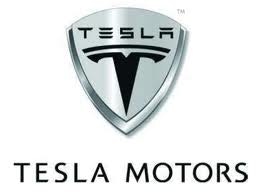A global survey of prospective electric car buyers conducted in 2010 and 2011 offers significant findings for electric-car makers worldwide.
Deloitte Touche Tohmatsu Ltd.’s (DTTL) Global Manufacturing Industry group surveyed 13,000 people in 17 countries on 5 continents. Countries surveyed include Argentina, Australia, Belgium, Brazil, Canada, China, France, Germany, India, Italy, Japan, Korea, Spain, Taiwan, Turkey, the UK and the US.

Among the survey’s most notable results:
1. Few Willing First Adopters in More Developed Nations
The largest number of first movers are in India (59%) and China (50%), while just 4% of Japanese said they would be among the first buyers. The low number of Japanese interested in electric cars was surprising given Japan’s total dependence on foreign oil. The percentage of first adopters was also less than 10% in France, Belgium and Germany. In the US, the figure was 12%.
2. Large Gap between Expected Driving Range and Reality
Over 85% said that driving range, charging time, and cost to charge were extremely or very important.
Although 77% of the US respondents drive less than 50 miles daily, 77% also said that the minimum acceptable driving range was at least 200 miles, with 37% expecting a range of 400 miles or more. Over 80% of customers in Germany, France, Japan, and Belgium wanted a minimum range of 200-plus miles. Only Tesla Motors Inc (NASDAQ:TSLA) makes a car meeting these range expectations.
The cars offered by Honda Motor Co Ltd (ADR) (NYSE:HMC), Nissan Motor Co., Ltd. (ADR) (OTCBB:NSANY), Mitsubishi Motors have ranges under 100 miles. Mitsubishi’s iMiEV’s range is just 63 miles. YTD through July, none of these 3 sold even 1,000 vehicles.
Honda Motor Co Ltd (ADR) (NYSE:HMC) may be more be more interested in hydrogen fuel cell cars. Its FCX Clarity has a range of 240 miles, but availability is very limited.
3. There is Little Patience for Long Charging Times
Tolerance for charging times greater than an hour was generally low. Only 36% of the Japanese and 42% of Americans would accept it. Citizens in the countries with the largest number of potential first adopters, India and China were more patient, with 72% and 70%, respectively saying charging times of 2 hours or more were OK.
According to the 2013 Global EV Outlook published in April by the Clean Energy Ministerial (CMI), the Electric Vehicle Initiative (EVI), and the International Energy Agency (IEA), Japan had 1,381 fast charging stations at the end of 2012, accounting for 80% of all such stations worldwide. The US had less than 200, or about 3%.
Despite its citizens’ insistence on fast charging, the Japanese government only plans to deploy 5,000 fast charging stations and 2 million slower chargers by 2020. The US expects to have over 22,000 chargers by 2014, but only 350 fast chargers.
Honda Motor Co Ltd (ADR) (NYSE:HMC), Mitsubishi, Nissan Motor Co., Ltd. (ADR) (OTCBB:NSANY) and Toyota Motor Corporation (ADR) (NYSE:TM) are cooperating to expand the fast charging network in Japan using $1 billion in government subsidiaries.
The ultimate goal is 36,000 fast chargers [http://insideevs.com/toyota-nissan-honda-and-mitsubishi-agree-to-jointly development-of-charging-infrastructure-in-japan/] equal to the number of gas stations today.
Tesla Motors Inc (NASDAQ:TSLA) and Nissan are also building fast charging stations for their customers and they dominate the US market with a 42% and 46% share, respectively. The Leaf’s low price and ample cargo room with the rear seats up probably account for its success vs. its range-challenged peers.
Tesla Motors Inc (NASDAQ:TSLA) expects its superchargers to cover 98% of the US population and parts of Canada by 2015. Although both are building 100 fast chargers, Nissan’s will be located at its dealerships and it hasn’t stated the expected coverage.
4. Bad News for Automakers — Most Customers Won’t Pay More for an Electric Car
In the US, 65% said they would not pay more for an electric car. Except for China, India and Korea, over half of respondents in every country refused to pay a premium. The greatest number of those willing to pay $2,000 or more extra were in Germany (17%).
5. Most Won’t Pay over $30,000 for an Electric Car. Is There Hope for Toyota & Tesla?
Over 70% of Argentinians, Brazilians, Indians and Turks didn’t want to pay more than $20,000. The largest number of people willing to pay up to $30,000 were the Chinese—69%. In the US, 78% refused to pay more than $30,000.




